
Puppy Mills
Combating puppy mills through multiple legal channels


Despite heightened public awareness, puppy mills continue to plague communities across the nation. The Animal Legal Defense is working across the country to combat puppy mills from multiple legal channels.
The term “puppy mill” generally refers to a large-scale commercial dog-breeding facility where the emphasis is on profits over the welfare of the dogs. The goal of puppy mills is to produce the largest number of puppies as quickly as possible, without consideration of genetic quality or the care of the animals.
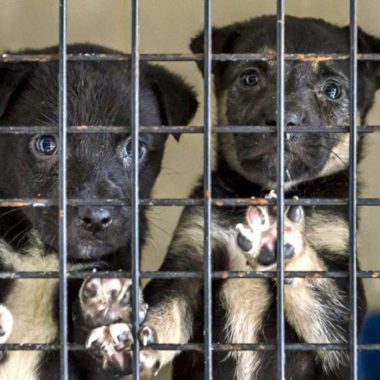 The dogs are generally kept in crowded, unsanitary conditions. They often lack good food, clean water, and veterinary care. The mother “breeder” dogs may give birth to multiple litters per year throughout her adult life. They, and aging father dogs, will regularly be abandoned or killed when they are no longer “useful” to their breeders.
The dogs are generally kept in crowded, unsanitary conditions. They often lack good food, clean water, and veterinary care. The mother “breeder” dogs may give birth to multiple litters per year throughout her adult life. They, and aging father dogs, will regularly be abandoned or killed when they are no longer “useful” to their breeders.
As a result of the breeding practices of puppy mills, it is common for puppy mill dogs to suffer from genetic and hereditary conditions, and deadly diseases. Additionally, many puppy mill dogs experience behavioral and psychological problems throughout their lives from lack of early socialization and being weaned too young.
This video exposes the truth about online animal sales. Narrated by actress and animal activist, Rooney Mara, Don’t Buy Animals Online illustrates the rampant fraud involved in online sales of puppies and other animals.
Tell Craigslist to Ban All Animal Ads
While Craigslist officially bans companion animal sales, they continue on the site under the guise of “rehoming.” Meanwhile, sales of animals not typically classified as companions — like pigs and chickens — are permitted, putting these animals in danger.
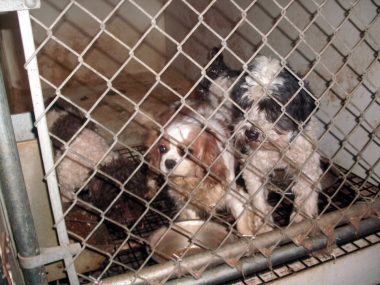
Mother dogs in puppy mills spend their entire lives in cramped cages made with painful metal wirestrand flooring, often stacked atop one another.

The vast majority of pet stores source their puppies from puppy mills across the United States.
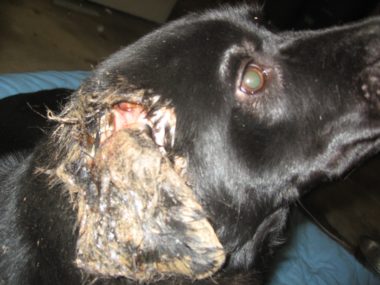
Dogs in puppy mills live in crowded, unsanitary conditions and rarely receive even basic veterinary care.
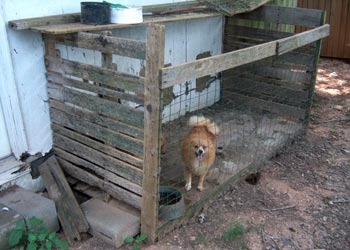
A puppy mill is a large-scale commercial dog-breeding facility where profits are valued more than the well-being of the dogs.

Puppies born into puppy mills are raised and transported in filthy conditions, deprived of social contact, and frequently shipped at younger ages than permitted by animal protection laws.

The vast majority of pet stores source their puppies from puppy mills across the United States.
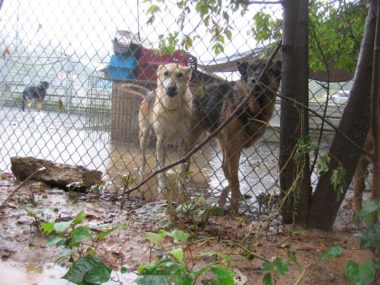
Pet stores routinely advertise puppies as sourced from “USDA-licensed” breeders but this license only means the breeder provides the bare minimum of care to keep its dogs alive.
No More Puppy Mills
Puppy mill operators maximize their profits by producing large numbers of puppies as quickly as possible. As a result, unsanitary conditions, disease, and neglect are rampant. Sign our pledge to boycott puppy mills. Together we can end this cruel industry.
Related News
-
Opposing the Cultivation and Trade of Octopus Produced through Unethical Strategies Act Introduced in the U.S. Senate
The federal bill would prevent the industry from gaining traction by banning commercial octopus farming in the U.S.July 25, 2024 News -
Complaint Demands Endangered Species Act be Enforced Against Washington Sham Animal Sanctuary to Protect Animals
Predators of the Heart, sometimes also known as Because We Matter Exotic Animal Rescue, has threatened to kill endangered wolves if it is not allowed to reopen.July 16, 2024 Press Release -
Lawsuit Filed Against USDA for Issuing Animal Welfare Act License to Serial Violator Yellowstone Bear World
The complaint argues the wildlife park causes undue stress to bear cubs by offering bottle-feeding and photo opportunities to the public as well as separating them from their mothers.July 16, 2024 Press Release
Related Cases
-
“Puppy Laundering” Scheme Violates California Law
Volar Society v. Bark Adoptions
-
Challenging a California Puppy Mill for Violating State and Local Laws
CARU Society for the Prevention v. Anthony
-
Challenging the Sale of Puppy Mill Dogs – Barkworks Class Action
Chelsea Vancleve v Chien Et Chat, Inc.
Looking for case and legal resources? View Resources
See More






